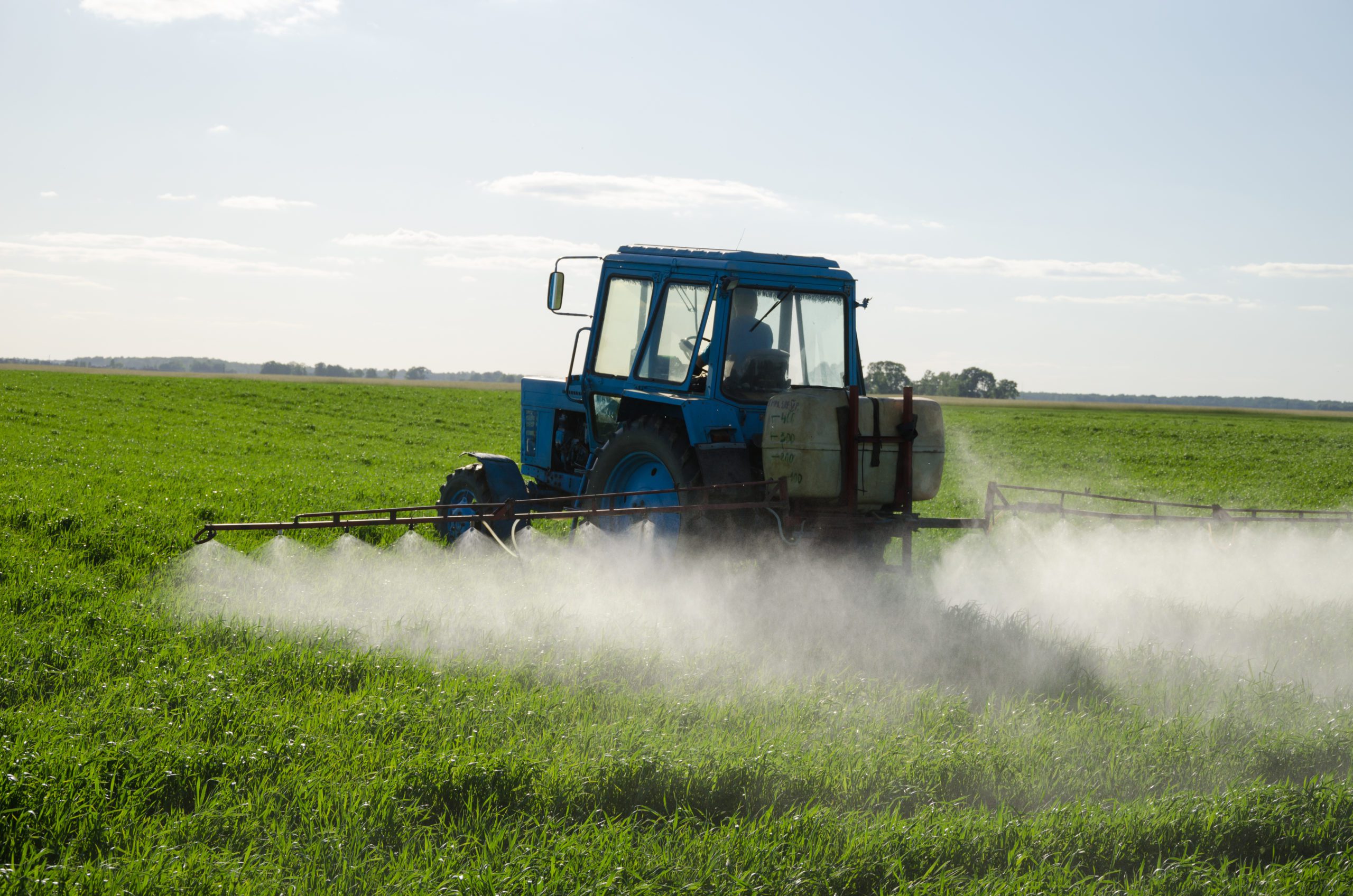Since launching in 2012, Fresh Harvest has been delivering locally grown, organic produce around the greater Atlanta area. We are wholly committed to the health of our customers via supporting sustainable, organic farming practices.
Did you know that certain farming practices can wreak havoc on your hormones?
Mood swings, insomnia, unexplained weight gain, skin issues, headaches and fatigue, are all common symptoms of hormonal imbalance.
Since hormones act as chemical messengers that control or regulate nearly every process in our bodies, even small imbalances can trigger major problems.
Eating an abundance of fruits and vegetables in a rainbow of colors ensures a full spectrum of pigments packed with the powerful antioxidants needed for optimal hormone function. But when pesticides come along for the ride, they can wreak havoc on your health.

Because hormones act as chemical messengers that control or regulate many biological processes in the body, EDCs can interfere with normal function in areas such as:
-
- Sleep
- Metabolism (thyroid)
- Mood and emotions
- Blood pressure
- Fertility and sexual function
- Growth and development
Even small disruptions in endocrine function have been shown to activate profound and long-term effects, particularly during highly sensitive life stages, such as pregnancy, lactation, early development and menopause.
Pesticide use in conventional farming

Nearly 70% of conventionally grown produce in the U.S. contains potentially harmful pesticide residues, according to the Environmental Working Group’s (EWG) analysis of the latest data from the United States Department of Agriculture (USDA).
A single exposure can have harmful, even lethal effects, while continuous use over a prolonged period of time, especially when combined with other chemicals, has been linked to a range of serious illnesses.
The 2020 dirty dozen worst offenders
For the past 17 years, the EWG has published “The Dirty Dozen,” a report showing which fruits and vegetables contain the highest level of pesticide residues, based on data reported by

the USDA. The 2020 worst offenders include strawberries, spinach, kale, nectaries, apples, grapes, peaches, cherries, pears, tomatoes, celery and potatoes.
Strawberries earned the top place for five years in a row. Leafy greens continue to be at the top of the list, with kale being added for the first time in 2019 after new data showed traces of the herbicide Dacthal (DCPA), which is linked to cancer, birth defects, thymus gland problems and liver damage, even at very small levels. DCPA was banned in 2009 by the European Union, yet continues to be used in the U.S.
Kale ranked third on the list with sales soaring in recent years as its multiple health benefits became known. As kale popularity grew, so did the level of pesticides being used. Multiple samples tested showed as many as 18 different pesticide residues. Both kale and spinach had up to 1.8 times more pesticides than other crops.
The EWG’s “2020 Shopper’s Guide to Pesticides in Produce” recommends eating organically grown produce, whenever possible, particularly when it comes to those with the highest exposures.
Does washing remove pesticide residues?
There are thousands of different pesticides used commercially, and while washing your fruits and vegetables is highly recommended to reduce pesticide residues, some are systemic and will not wash off because they’re in the produce (e.g., strawberries).
It’s also worth noting that washing is already a part of what the USDA does before testing pesticide levels found on conventional produce. According to the EWG, they test in the same way we would at home: produce with edible peels are rinsed in cold water, while those with inedible peels are peeled before testing.
Although washing, peeling and scrubbing can reduce pesticide residues, the remaining residues identified can still be significant.
The growing organic market
Most people have asked themselves if it’s worth paying a few extra bucks for organic produce. Is it a splurge or a worthwhile investment in your health?
As consumers become more aware of the serious health concerns related to pesticide use, conventional farming methods are being called into question. The Economic Research Service (ERS), part of the USDA, reports a huge increase in demand for organics, with fresh fruits and vegetables being the top-selling category.
According to the ERS, “Consumers prefer organically produced food because of their concerns regarding health, the environment, and animal welfare, and they show a willingness to pay the price premiums established in the marketplace.”
Is organic more nutritious?
Despite ongoing debate, there’s a growing body of evidence showing how farming methods can influence the nutritional content of food. A meta-analysis of over 300 peer-reviewed publications published in the British Journal of Nutrition showed significant differences between organic and conventional agriculture. The study concluded that organic crops, on average, show higher concentrations of antioxidants, such as polyphenols. Polyphenols have been linked to a reduction in the risk of chronic diseases, including neurodegenerative diseases, cardiovascular disease and certain cancers.
Organic certification: USDA Organic or Certified Naturally Grown?
Say you’re in a farmer’s market looking for “organically-grown” produce. You ask if it’s organic, and they tell you they don’t use pesticides. With so much on the line, you may need more assurance.
The USDA’s National Organic Certification Seal provides consumers with confidence that what they’re buying meets specific standards to ensure greater safety from health-damaging pesticides. The main benefits to consumers, according to Consumer Reports, include: strong standards backed by federal law; minimal pesticide residues; animals raised without hormones or antibiotics; no genetically modified (or engineered) organisms (GMOs); required on-farm annual inspections.
A trustworthy alternative to USDA Organic Certification is the Certified Naturally Grown (CNG) seal. According to their website, Certified Naturally Grown (CNG) standards are the same, if not better than the USDA organic program, and may be better suited for community-based farms selling in local markets.
CNG certification requires farmers to commit to not using any synthetic pesticides, herbicides, fertilizers, antibiotics, hormones or genetically modified organisms (GMOs). Verification of compliance is ensured through a “participatory guarantee system” where they are inspected by other farmers. Frequently Asked Questions are available on the CNG website.

The bottom line
To keep your hormones happy, it’s important to eat a healthy diet with plenty of fresh fruits and vegetables, while minimizing endocrine-disrupting chemicals as much as possible. Choosing organic produce will significantly minimize your exposure to hormone-disrupting pesticides.
The next time you bite into a crisp and juicy organic apple, close your eyes and taste the difference. It’s remarkable. It may not look as “perfect” as one grown conventionally, but your hormones will thank you. And don’t forget to thank the organic farmer who’s been looking out for you. Organic farming is a labor of love. 🍎
This post was written by guest contributor Nancy Spiccia, an investigative reporter and author specialized in health and science. She is a Certified Public Accountant with expertise in healthcare, and Certified Health Coach. Her book, Clean Start, Simple Non-Toxic Choices to Protect Your Family provides a guide for identifying and reducing toxic chemical exposures




